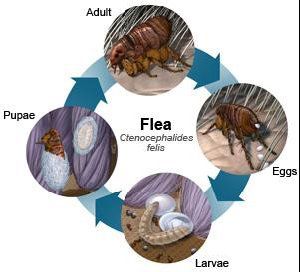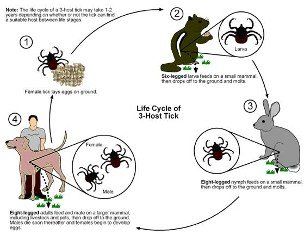Associated Veterinary Clinic
Address: 912 Walnut Street Washington, IL 61571 | Phone: (309) 444-2177
Preventative Care
Preventative Care in Washington, Illinois
All companion animals benefit from preventative care. This care is to prevent or lessen an illness. Following the correct preventative care protocol can improve, lengthen and even save your companion's life.
Canine Preventative Care Protocol
RABIES VACCINE
- This is a disease that creates neurologic symptoms. It is most prevalent in wildlife and is transmissible to all warm-blooded animals through a bite. Symptoms of rabies are not immediately visible after transmission. Rabies is always fatal.
- Rabies vaccines require a booster vaccine every three years after initial one-year vaccine.
DISTEMPER COMBINATION VACCINE
- Our Distemper Vaccine (DHPP / DHLPP) is a combo vaccine which includes protection against Distemper, Parvovirus, Parainfluenza and Hepatitis.
- Distemper is a highly contagious, often fatal disease. Symptoms start mildly with eye discharge, coughing, weight loss, vomiting which progresses to convulsion, paralysis and death.
- Parvovirus is an often fatal disease of the intestinal tract and is very contagious.
- Parainfluenza is an upper respiratory infection and one component of kennel cough.
- Hepatitis is an infectious viral disease of the liver.
- Distemper combination vaccines require an annual booster.
BORDETELLA
- Bordetella is a bacterial and viral infection, which is also known as kennel cough.
- A Bordetella vaccination is good for 1 year; however the efficacy begins to diminish after 6 months so companions that frequent dog parks, doggy daycare or grooming/boarding facilities may be better-protected by boosters every 6 months.
LEPTOSPIROSIS
- Leptospirosis is a bacteria carried by wildlife (raccoons, deer). It is excreted through their urine and feces. It causes liver and kidney problems, and can be fatal. It is also transferable to humans. Fences do not always keep wildlife from entering yards, even in the city.
- Leptospirosis vaccines are good for 1 year.
LYME
- The bacteria that causes Lyme Disease is carried by ticks.
- Lyme Disease causes muscle weakness, fatigue, arthritis, heart issues, kidney issues, etc.
- This vaccine is recommended only for dogs who hunt are primarily outdoors.
- Lyme vaccine is good for 1 year.
- Testing for Lyme Disease can be done in-office with a small blood sample.
FECAL EXAMINATION
- A fecal exam looks for evidence of intestinal parasites and eggs.
- Intestinal parasites can cause bloody diarrhea, weight loss and in severe cases, anemia and death.
- Many intestinal parasites are transferable to humans.
- Fecal examinations should be completed once a year for each pet. Tests can be done more often if the pet has loose stools or it is believed to have a parasite.
HEARTWORM TEST
- Our Heartworm Test checks for Heartworm Disease and Lyme Disease transmitted by ticks.
- Heartworm disease is carried by mosquitoes and is transferred when the mosquito feeds on the pet. The injected larvae matures into adult heartworms that can prevent the flow of blood through the heart and cause death.
- This test should be performed annually and heartworm prevention is to be given every thirty days, year-round.
Feline Preventative Care Protocol
RABIES VACCINE
- This is a disease that creates neurologic symptoms. It is most prevalent in wildlife and is transmissible to all warm-blooded animals through a bite. Symptoms of rabies are not immediately visible after transmission. Rabies is always fatal.
- Rabies vaccines require a booster vaccine every three years after initial one-year vaccine.
DISTEMPER COMBINATION VACCINE
- Our Distemper Combination Vaccine (RCCP) provides protection against Distemper (Panleukopenia), Rhinotracheitis, Calici Virus and Chlamydia.
- Distemper is a highly contagious, often fatal disease. Symptoms include loss of appetite, diarrhea and vomiting.
- Rhinotracheitis is similar to a cold for cats but can cause serious problems in kittens and elderly cats.
- Calici Virus causes sneezing, fever, loss of appetite, inflammation around the eyes and ulcers in the mouth.
- Chlamydia symptoms are similar to Calici Virus and Rhinotracheitis.
- Distemper Combination Vaccines require an annual booster.
FeLV (FELINE LEUKEMIA) VACCINE
- Feline Leukemia is one of the most common causes of illness and death in cats.
- Feline Leukemia is highly prevalent in outdoor cats.
- Feline Leukemia is a cancer-causing virus that can suppress the cat's ability to fight infections.
- Feline Leukemia Vaccine is required annually.
- Feline Leukemia Vaccine is recommended for outdoor cats or any households containing cats who go outdoors.
FECAL EXAMINATION
- A fecal exam looks for evidence of intestinal parasites and eggs.
- Intestinal parasites can cause bloody diarrhea, weight loss and in severe cases, anemia and death.
- Many intestinal parasites are transferable to humans.
- Fecal examinations should be completed once a year for each pet. Tests can be done more often if the pet has loose stools or it is believed to have a parasite.
FELINE LEUKEMIA / FIV Test
- The Feline Leukemia / FIV test detects both Feline Leukemia and FIV.
- Both diseases are easily transmitted between cats.
- Tests are recommended for all kittens and adult cats before introducing them into a household.
- These diseases can take up to 3 months to test positive, we recommend re-testing after three months.
Fleas, Ticks and other annoying pests….Know Your Enemy
To protect your pet and home from fleas, it helps to understand the flea life cycle.
- Fleas can make your pet itch and cause considerable discomfort.
- Fleas are tiny, and you might not even see them, especially with cats and dogs who groom themselves frequently.
- A flea can begin feeding on your pet within seconds.
- Within 24 hours of its first blood meal, a flea can begin laying eggs in your furniture and carpet and on your pet.
- Flea egg production can reach a rate of 40 to 50 (or more) per day, resulting in an infestation.
- This rapid rate of invasion is why it's critical to kill fleas quickly, before they can lay eggs.
- When a dog or cat eats a flea, they can get tapeworms.
To devise a plan of attack against the enemy, call us to determine which product will work best for your home.

TICKS
Ticks have three life stages: larva, nymph and adult.
- In each stage they feed by sucking blood from animals.
- Most disease is transmitted by nymphal ticks, which are smaller than a poppy seed in size and easily escape detection.
- You may find adult ticks on dogs, cats, and other domesticated animals.
- Nymphs feed primarily on smaller animals, including squirrels, mice, rabbits and birds.
- Birds play an important role in distributing ticks throughout the country.
To devise a plan of attack against the enemy, call us to determine which product will work best for your home.

Associated Veterinary Clinic
912 Walnut Street
Washington, IL 61571
Phone:
(309) 444-2177
Fax: (309) 444-3632




Proudly Serving: Washington, IL and the Surrounding Area including Sunnyland, IL Eureka, IL, Metamora, IL
Deer Creek, IL, Goodfield, IL, Morton, IL, East Peoria, IL, Germantown Hills, IL
Powered by Dex Media